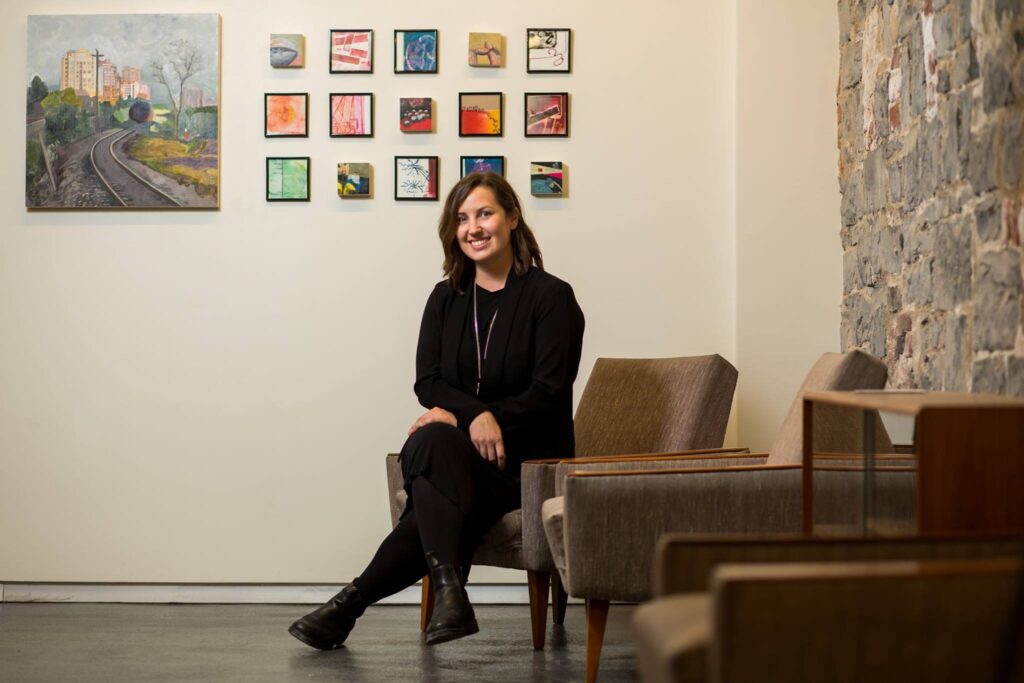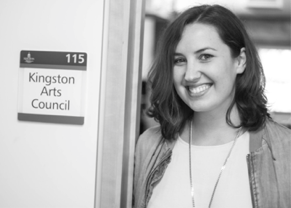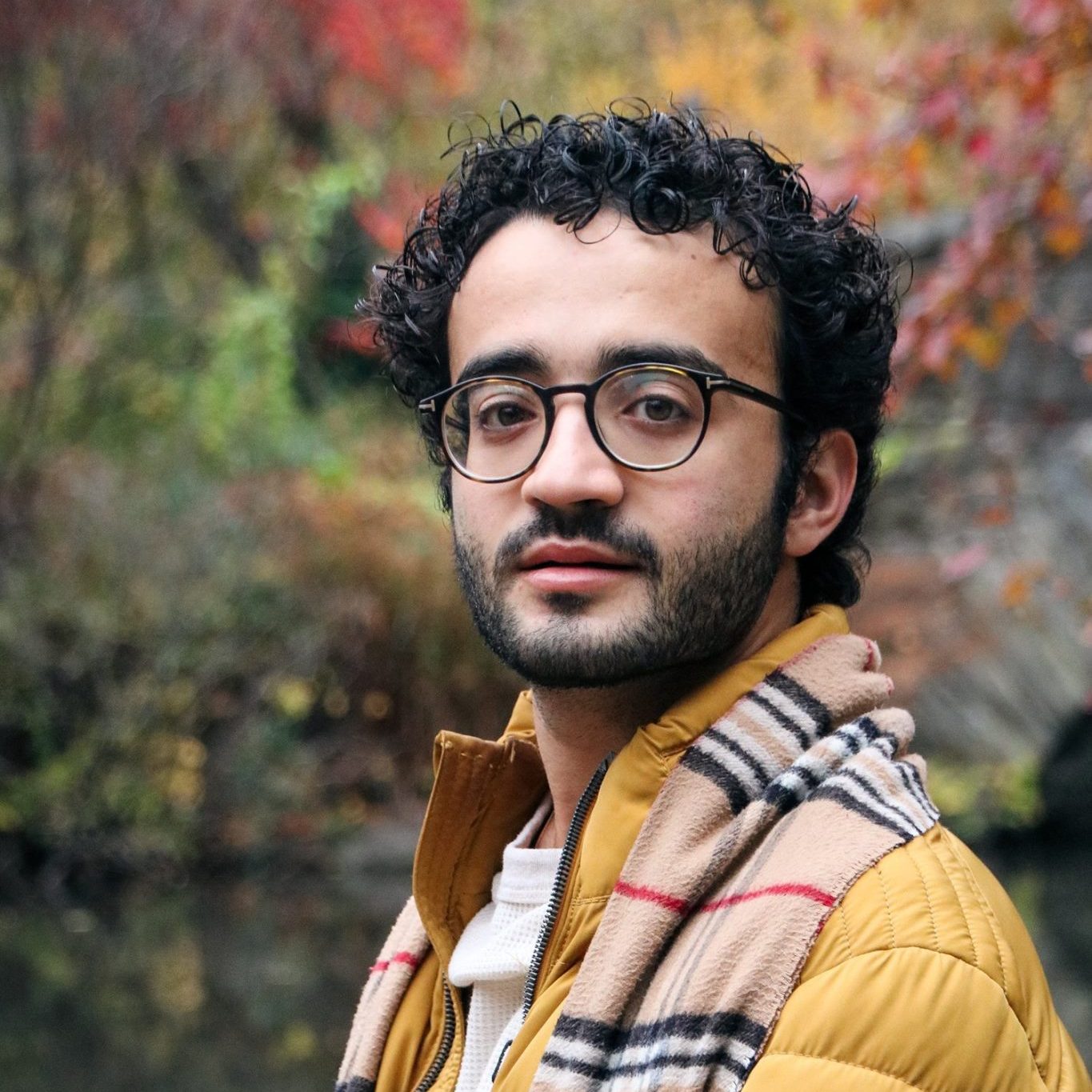Meet Danika Lochhead, the Kingston Arts Council’s most recent Executive Director

[Editor’s note: as of posting date, the KAC Board of Directors announced that Danika Lochhead is stepping down from her position of Executive Director at the Kingston Arts Council, effective Friday, September 14 as she has accepted a position at the City of Kingston as Manager, Arts and Sector Development, where her work with the community will continue in new and expanded ways. This interview was conducted while Danika still held the position of Executive Director of the Kingston Arts Council. The search for a new Executive Director is underway.]
Danika Lochhead (pronounced Lock-heed) plays a crucial role in fostering opportunities for theatre creation and appreciation in Kingston about which not nearly enough theatre practitioners in the community know. As Executive Director of the Kingston Arts Council (KAC), she is responsible for leading and overseeing the distribution of public funds to organizations for the production of their work. Due to the charitable nature of theatre companies (and other arts organizations), they do not have the opportunity to receive funding from selling stocks to shareholders. Therefore, they rely on entities like the Kingston Arts Council (and other public and private funders) to get their money. With Danika in the driver’s seat for two years, she works working with her devoted team to ensure that the KAC provides an unprecedented amount of support and resources to arts organizations in the Kingston area. But first, a few things about Danika herself.

Once graduating high school in Kingston, she moved to Toronto to pursue a Bachelor of Arts in Canadian Studies at the University of Toronto. After the completion of her degree, Lochhead started to work in the world of corporate public relations and communications. After 6 years, however, she grew tired of the corporate life and culture and sought to switch her focus to the arts world. After all, Lochhead grew up around the arts – her mother and father are the editor and publisher (respectively) of SLATE Art Guide, and her grandfather was a Canadian painter and a member of the Regina Five. Although Lochhead is not an artist herself, her love and deep connection to the arts compelled her to want to contribute in whatever way she could. This led her to pursue a post-graduate certificate in Cultural Planning at the University of British Columbia. She was living in Vancouver when a position at the KAC opened up. She wasn’t planning on returning to her hometown, but just could not resist; she describes her current work as “one of the best jobs I’ve ever had because I get to work with a wide-ranging arts community, and find ways to support them, as well as build their capacity and address issues that affect them”. Lochhead capitalized on this need for support, and in response sought to create the KAC’s first strategic plan with her team.
Before setting to work on crafting the plan’s priorities, Lochhead participated in a community engagement process, led by a local consultant, to connect with the arts community in Kingston to ask what their needs were and where they thought there were gaps. Lochhead knew that this collected data would help her better articulate the strategy’s priorities. From this consultation and the planning that followed, the KAC identified 4 main priorities:
- Rebrand and reposition the KAC in its role as champion, advocate, and expert on the arts community in Kingston and surrounding area
- Strengthen and support the local arts community through communications and opportunities for funding, networking, and collaboration
- Be a leading local arts resource, responding to key arts and community issues
- Build Kingston Arts Council’s organizational capacity
I’ll briefly explain what each one means, and how the KAC has been actualizing these priorities in the community.
The first priority is about establishing the organization as one that has an inclusive view of what an artist is, that can be a champion for these artist, and act as a central resource for the arts community. The KAC works to reach diverse communities and design programming in ways that offer access to all audiences, regardless of means or ability. Last year, the KAC partnered with the Kingston Immigration Plan to host a newcomer artist workshop, which created a space for these newcomers to share “their unique and authentic artistic practices with the Kingston community” and wants to continue to initiate partnerships with community organizations, as well as with its main funder, the City of Kingston, to help support this type of work.
Priority 2 involves diversifying their funding programs portfolio and making room for new funding initiatives. In this priority, the KAC would also like to nurture and promote collaboration in the community through strategic partnerships and facilitating networking and mentorship opportunities. This priority also focuses on how the KAC can play an active role as a communications hub for the arts community to help break down silos and foster greater awareness and appreciation of the arts in Kingston. The launch of a new website, arts guide e-newsletter, and the creation of a database of artists are some of the ways the KAC has started to address this work.
In Priority 3, the KAC examines what its role in the community looks like from a trends and issues perspective and facilitate opportunities for dialogue, concept development, advocacy and mentorship. Through the community consultation process, the KAC identified 2 prominent issues: the lack of professional development and a shortage of space for artists, collectives, and arts-focused programming. Fortunately, though, the KAC has already started to combat these issues by launching a professional development workshop series called PLATFORM, aimed at building professional capacity of artists, cultural workers, and organizations. The KAC started to address the issue of space for visual artists to exhibit work through the launch of UNIT 115, a free, small exhibition space located in the front of the KAC office that shows the work of local artists year-round.
And finally, Priority 4 simply exists to make sure that the KAC is also growing its capacity, supporting staff through professional development, and ensuring that they can achieve their organizational goals as outlined in the strategic plan.
With all of this in mind, Lochhead has her “pie in the sky” vision of what the KAC could be and offer to its community. One of the accomplishments that Lochhead would like to achieve – one that she has already begun to champion – in her tenure as Executive Director is a greater focus on arts and equity in the Kingston arts community. The KAC received provincial funding the Arts & Equity Project, an initiative that aims to engage the community to advance equity in the arts. The first phases of this project, that focus on providing professional development opportunities to promote, strategize and implement methods of achieving more equitable access to the arts services and programming in Kingston. Lochhead notes that from the community response to the Arts & Equity Project that there is a “very clear desire for ongoing peer learning and community connection” in relation to this topic. Another goal of hers is to ensure that the KAC’s funding models and opportunities reflect the changing needs of the community. This could include individual granting programs for emerging, mid-career, and established artists, as this does not currently exist. In the meantime, however, what the KAC does do is provide the expertise and support needed to help individual artists navigate the complex and daunting process of applying for grants. Support in this area could include making sense of grant eligibility, help in mapping out a project plan, creating budgets and identifying appropriate funders. Lochhead would also love to see the arts community, across all disciplines, comes together as collaborators and for arts and heritage – the 2 components that make up the cultural sector in Kingston – to become more interconnected. Lochhead believes that engaging and supporting the arts community, as a vital piece of the cultural sector, will help enhance the impact of the arts on the Kingston community.
To get in touch with the Kingston Arts Council, stop by their office, Unit 115 at the Tett Centre for Creativity and Learning, send them an email at info@artskingston.ca, or give them a call at 613-546-2787.
